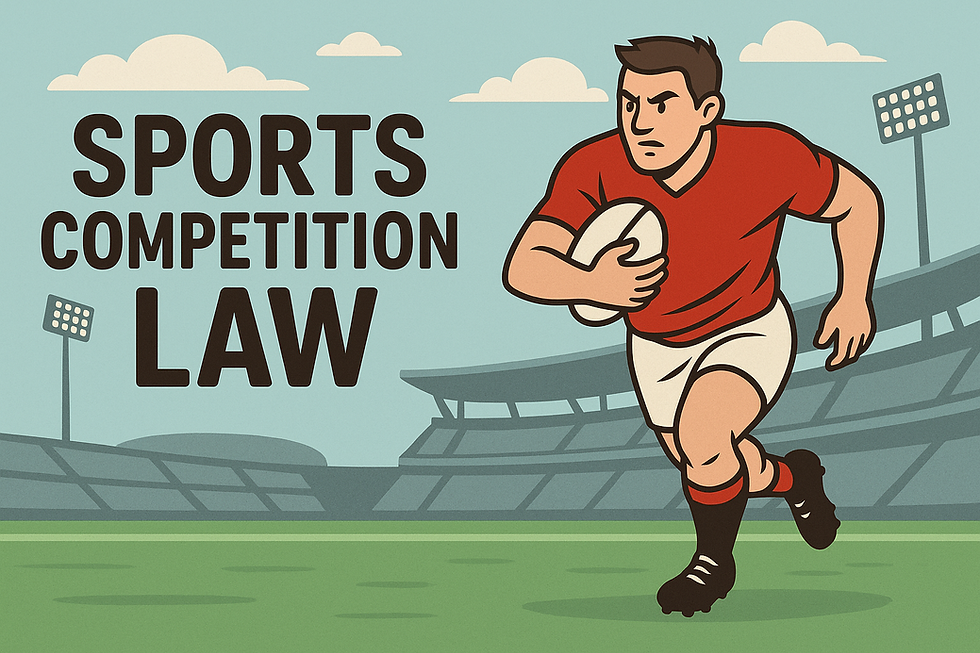An introduction
- Bev Williamson
- Sep 11
- 2 min read
Updated: Oct 13

I first became involved in sports competition law early on in my PhD (which considers regulatory dynamics of cartel enforcement in the UK, and is in no way sports related), when my husband signed for London Welsh RFU. They had just won the Championship and were hoping to take up a spot in the Premiership the following season, which is when he was due to join them.
The RFU and Premier Rugby had different ideas at the time, and denied them their place in the Premiership because London Welsh RFC failed to satisfy the Minimum Standards Criteria (MSC) (the failure related to their proposed use of the Kassam Stadium). Their chairman at the time, was a partner at a leading Magic Circle law firm, and he very generously gave me very minor tasks (even calling them that feels like an exaggeration) to do when they set about their challenge to the RFU/Premier Rugby decision.
The appeal was ultimately successful and London Welsh, and my husband, played in the Premiership that year. The challenge was based on competition law grounds, yet the anti-competitive barriers facing London Welsh extended beyond the MSC. The mechanism of central funding distribution, which I have written about a number of times, placed the club at a significant competitive disadvantage, and they couldn't maintain that hard fought for place in the topflight of rugby. They later went into administration, and were forced to drop down into the lower amateur leagues. They have since then, managed to win promotion back up to National League 2 East.
For me, competition law has always been about fairness of opportunity, and this experience really ignited a sustaining interest in the relationship between professional sport, governance structures and competition rules. More recently, developments in competition case law around labour markets have inspired me to apply the same interest to player markets.
Sport, in my view, is more than entertainment. It binds communities, shapes identities, and for families like mine, provides not only income but a way of life. It holds a unique place in the lives of players and fans alike, and competition law has an important role to play in protecting sport, both as a social cornerstone, and as a commercial ecosystem, as it can act as both carrot and stick, encouraging best practice or compelling change when resistance arises.
We are now witnessing a surge in competition law enforcement within the sports sector, with profound implications for governing bodies, athletes and supporters. The European League of Sports Antitrust aims to bring together academics, economists, lawyers, and sports professionals working in this space, to foster research, share expertise and build connections in the growing field of sports competition law.
Get involved
The European League of Sports Antitrust is open to all sports competition law and economics professionals, regardless of their affiliation or seniority.
We offer
It is an open and free platform, offering professional visibility and networking. It is a hub for sharing research, finding expertise and fostering collaboration.


Comments